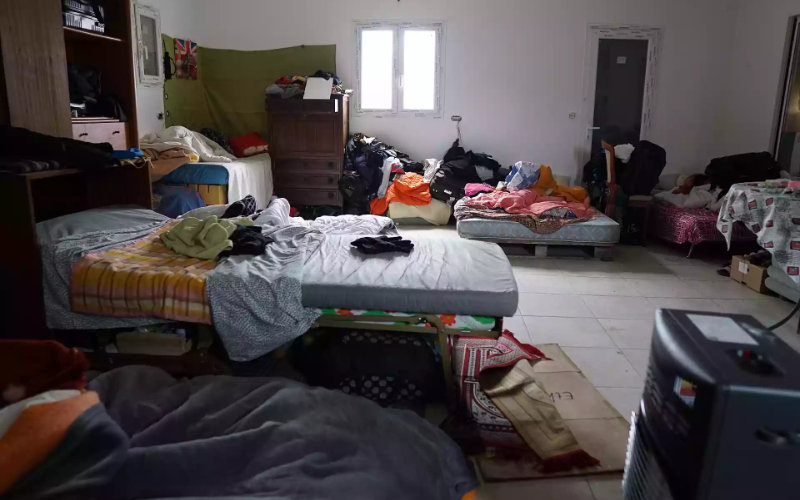Unpaid Moroccan Farm Workers Stranded in France, Living Without Basic Necessities

Seventeen Moroccan seasonal workers find themselves stranded in Vaucluse, due to lack of pay. Deprived of the bare minimum, they live in difficult conditions, but are determined to fight to get their due.
Once the agricultural season was over, these seasonal workers, aged 22 to 46, were not paid by their employer, the SAS de Rigoy. For months, they have been surviving in a small house, without water and electricity, and with food brought by the Restos du Cœur. "Without the Restos du Cœur, we would be dead," says one of them. The 17 Moroccan seasonal workers arrived from the Taza region in northeastern Morocco between May and October 2023, and participated, without days off, in the harvest of asparagus, zucchini, and cherries on a farm, reports Basta.
In July, the Moroccans reported their employer to the labor inspection in Avignon for refusing to pay their wages, assuring them that they would be paid once they returned to Morocco. They also raised their problem with the Force ouvrière trade union representative Hervé Proksch, who filed an urgent referral to the labor court in mid-October for five cases. "I’ve had quite a few cases in my career, but never so many unpaid workers on the same farm," the union representative assures.
The employer was ultimately ordered by the labor court to pay between 6,000 and 8,000 euros to each of these five seasonal workers, representing two or three months’ wages, unpaid overtime, and damages. He was again sentenced on January 8 to pay compensation to three other employees. Other decisions on the merits, concerning employees who worked without an employment contract, are expected on April 19.
The 74-year-old manager of the farm and the 43-year-old accountant were taken into custody on January 17, 2024, and then indicted for human trafficking and subjecting vulnerable or dependent persons to unworthy working and housing conditions, the Carpentras prosecutor’s office said on Monday. The company itself has been placed in receivership. But all these decisions do not affect the daily life of the Moroccan seasonal workers who live in unworthy conditions. They survive thanks to the generosity of the neighborhood and associations.
Pending the trial, the Moroccan seasonal workers have no choice but to wait. "We do nothing. We are not allowed to work," complains Boujemaa, one of them. They especially do not want to return to Morocco, where they have sold everything and even borrowed money to pay the 10,000 or 12,000 euros demanded by their employer to issue them a work contract that would guarantee them a peaceful life in France after three years. The state no longer controls employers, who as a result "do not respect either the law or the people," criticizes Jean-Yves Constantin of the Collective for the Defense of Foreign Workers in Agriculture (Codetras).
Related Articles
-

Seine River Murders: Two Arrested as Police Unravel Mystery of Four Bodies
21 August 2025
-

France Cracks Down: 5-Year Prison Terms for Sham Marriages in Immigration Clampdown
21 August 2025
-

Parisian Rooftop Restaurant Faces Backlash Over Israeli Wines Amid Gaza Conflict
20 August 2025
-

Stolen French Mountain Bike’s 1,000-Mile Journey: From Colomiers to Morocco’s Black Market
20 August 2025
-

French Farmer’s Gamble on Heat-Resistant Pink Grapes Saves Farm Amid Climate Crisis
19 August 2025